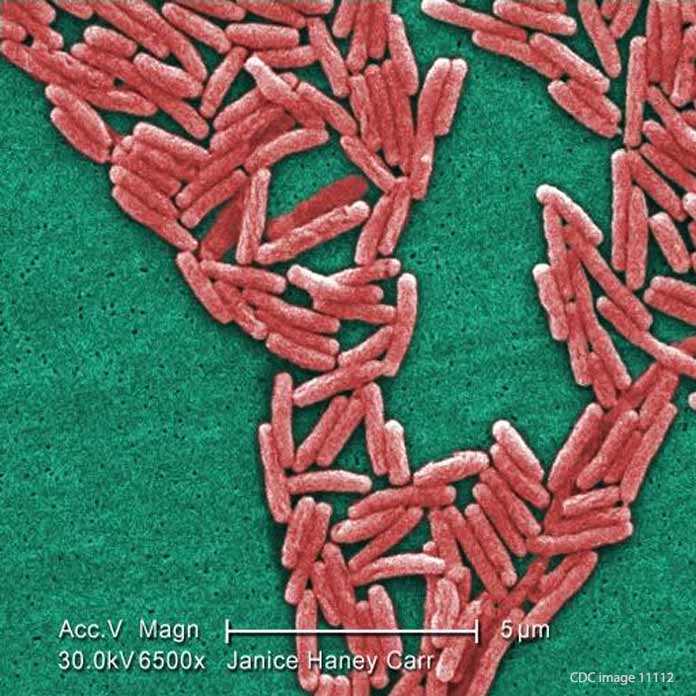Legionellosis has struck a Bucks County, Pennsylvania nursing home, according to the Bucks County Courier Times.
Last Friday, June 3rd, a representative of the Pennyslvania Department of Human Services announced that three [3] residents of The Brunswick at Attleboro facility, the nursing and rehabilitative wing of the the larger Attleboro retirement community, had tested positive for “Legionnaires’ disease.” One of these residents died.
Over the weekend, Attleboro executive director Mary Kender reported that a fourth resident had also tested positive for the Legionella bacteria.

Subsequently, on Monday, Bucks County Health Department director Dr. David Damsker revealed that two of the four residents did not actually develop full-blown Legionnaires’ disease. Rather, they were diagnosed with Pontiac Fever, a nonfatal type of legionellosis that does not cause the potentially life-threatening pneumonia that is the primary danger of Legionnaires’ disease.
Environmental testing results for the nursing care facility’s water and heating / cooling systems are still forthcoming. While these systems have been treated as a precaution, director Damsker warns that other residents may develop legionellosis over the next week:
“’Our goal is to try to prevent any future cases of the disease,’ Damsker said. However, because the incubation period for Legionnaires’ is up to 10 days, there might still be another one or two cases, he added.” (1)
When Legionella proliferates in a poorly maintained water system in a retirement community or convalescent center, it can be disseminated into the atmosphere through showers, misters, humidifiers, fountains, ice machines, and water features. When the contaminated water vapor is inhaled (or when it is accidently aspirated into the lungs when drinking contaminated tap water), it can cause Legionnaires’ disease.
The milder version of legionellosis, Pontiac fever, simply causes flu-like symptoms (aching muscles, headache, general fatigue) in healthy people.
Elderly people who require professional care at a nursing and rehabilitative center, however, have weakened immune systems and thus are much more likely to catch (and possibly die from) Legionnaire’s disease. Risk factors for Legionnaires’ disease include: age, heavy smoking, organ transplants, cancer, HIV, underlying medical problems like diabetes, respiratory disease / COPD, cancer, or renal dialysis, heavy alcohol consumption, and / or certain drug therapies like corticosteroids.
Although Legionnaires’ disease may initially present with the flu-like symptoms of Pontiac fever, it then swiftly progresses into pneumonia, indicated by high fever (102° to 105°F, or 39° to 41°C), cough, breathing difficulty / shortness of breath, chills, and chest pains.
And, when Legionnaires’ disease infects residents within nosocomial (healthcare) environments, they die in ~50% of cases.
Source:
- “Health department says two cases of Legionella infection are Pontiac Fever.” Bucks County Courier Times. Web. 6 Jun. 2016.